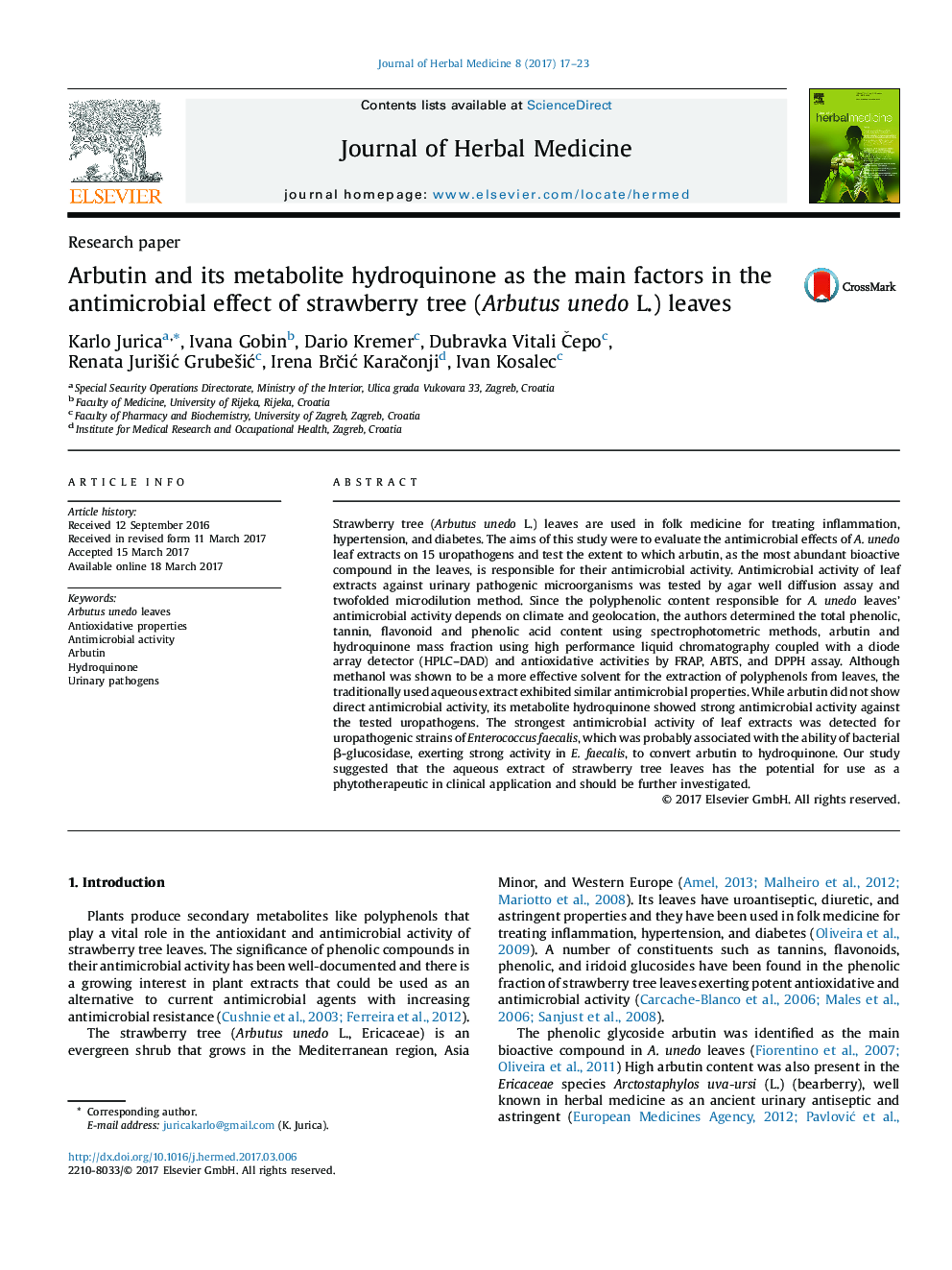| Article ID | Journal | Published Year | Pages | File Type |
|---|---|---|---|---|
| 5548260 | Journal of Herbal Medicine | 2017 | 7 Pages |
Strawberry tree (Arbutus unedo L.) leaves are used in folk medicine for treating inflammation, hypertension, and diabetes. The aims of this study were to evaluate the antimicrobial effects of A. unedo leaf extracts on 15 uropathogens and test the extent to which arbutin, as the most abundant bioactive compound in the leaves, is responsible for their antimicrobial activity. Antimicrobial activity of leaf extracts against urinary pathogenic microorganisms was tested by agar well diffusion assay and twofolded microdilution method. Since the polyphenolic content responsible for A. unedo leaves' antimicrobial activity depends on climate and geolocation, the authors determined the total phenolic, tannin, flavonoid and phenolic acid content using spectrophotometric methods, arbutin and hydroquinone mass fraction using high performance liquid chromatography coupled with a diode array detector (HPLC-DAD) and antioxidative activities by FRAP, ABTS, and DPPH assay. Although methanol was shown to be a more effective solvent for the extraction of polyphenols from leaves, the traditionally used aqueous extract exhibited similar antimicrobial properties. While arbutin did not show direct antimicrobial activity, its metabolite hydroquinone showed strong antimicrobial activity against the tested uropathogens. The strongest antimicrobial activity of leaf extracts was detected for uropathogenic strains of Enterococcus faecalis, which was probably associated with the ability of bacterial β-glucosidase, exerting strong activity in E. faecalis, to convert arbutin to hydroquinone. Our study suggested that the aqueous extract of strawberry tree leaves has the potential for use as a phytotherapeutic in clinical application and should be further investigated.
